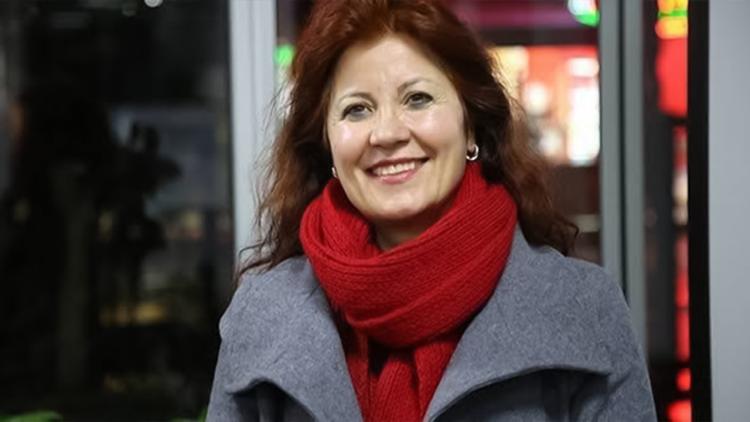
Prof. Dr. Nejla Kurul, an academic expelled from Ankara University, now chair of the teachers' union Eğitim-Sen, recalls events that followed the 'Peace Petition' signed on 11 January 2016, and makes assessments.
In 2013, the Turkish authorities and the Kurdistan Worker’s Party (PKK) began a so-called ‘peace process’ in an attempt to resolve the decades-long conflict between them. After two years of talks under ceasefire conditions, however, the conflict resumed in the summer of 2015 when the process fell apart.
The following January saw 1,128 scholars, who were later to be referred to as ‘Academics for Peace’, sign a petition against the extreme measures Turkey had taken in its military operations, declaring round-the-clock curfews in Kurdish-majority provinces and utilising heavy weapons in urban centres.
The petition, entitled “We will not be a Party to this Crime”, decried violations of the right to life, liberty and security, as well as the ban on torture and ill-treatment, and called for a return to peace talks.
Turkish President Erdoğan promptly labelled the signatories ‘the darkness’.
Under the state of emergency declared following the 15 July failed coup attempt later that year, almost all of the scholars who signed the petition were driven out of universities, becoming pariahs overnight, unable to find other work.
Their appeals were submitted to a state of emergency oversight commission which started issuing decisions in November 2021 rejecting the vast majority of academics’ appeals and requests to return to their former positions.
The commission received some 126,000 appeals overall, including those from former members of the academia, and ruled to reject 104,643 of them. There are 6,080 applications that still remain in limbo.
Journalist İrfan Aktan spoke with Dr Nejla Kurul, the current chair of the teachers’ union, Eğitim-Sen and a former faculty member at Ankara University, about the six years since the petition came out.
“The first year went by with uncertainty, anxiety, threats and bullying in the universities, because that was when the expulsions started,” Dr Kurul told Aktan. “In particular, the comments the president made the day after the petition was made public caused us a lot of anxiety.”
Scholars targeted by President Erdoğan
It was President Erdoğan’s remarks below, from 12 January 2016 that Dr. Kurul referred to:
“These imitations of intellectuals dare to stand up and say the state committed a massacre! You are the darkness, you are not intellectuals,or anything like!”
University administrations felt compelled to take action against the Academics for Peace, as there was no specific law against signing a petition, nor was there any disciplinary action prescribed in any bylaws, Kurul noted.
“The university administrations were baffled at first too. For a long time after that, we could not fathom what might follow, what we would have to face.”
She continued:
“We thought at worst we would receive warnings, reprimands or penalties to our tenure. We thought that there was still a semblance of academic freedom or freedom of expression in universities. But following the 15 July coup attempt, a purge started against the opposition and the state of emergency saw more than 30 emergency decrees expel the Academics for Peace one by one. I myself was expelled from Ankara University by an emergency decree dated 7 February 2017.
“Some universities did try to protect their faculty members. For instance, Boğaziçi University has continued to display a dignified resistance from then up to now, protecting the Academics for Peace against all external pressure including threats from the president, as part of the university’s autonomy. Established universities such as Hacettepe and the Middle East Technical University also kept academics out of expulsion lists, arguing that the petition was protected under the freedom of speech. Others, while not expelling the academics outright, punished them by stopping their career progression, not giving them tenure, forcing them to retire, and otherwise pressuring them.”
Crime boss joins in threats
The infamous crime boss Sedat Peker, who has since fallen out with the government and launched a new career as a whistleblower on YouTube, at the time joined Erdoğan in threatening the scholars.
“The bells will first toll for the so-called intellectuals. They will bleed in streams. We will bathe in their blood,” Peker had said. The comments, made at a rally the mobster held in Erdoğan’s hometown of Rize, were subject to an investigation and prosecution, but Peker was acquitted in 2018.
The signatories, now some 5,000-strong with the addition of second and third waves of signatories, were also targeted by pro-government media and associations in statements and counter-petitions, Kurul said, adding:
“The academics drew together rapidly against the terrible pressure. Ankara University expelled more faculty members than any other, but this was not enough to stop solidarity among academics. Of course there were some who kept their distance, but then the second wave of signatories emerged. In a short time, there were more than 2,200 signatures. This alone shows how the oppression only caused solidarity to increase. There were also thousands of academics who did not join the peace petition but took a stand against the pressure on us. In the end, a group of academics who wanted an end to conflict and death revealed the true colours of the universities and the government.”
Universities and political administration: A long struggle for autonomy
The universities have always been at odds with the governments, Kurul said. “The university cannot produce scientific knowledge unless it has autonomy from the government. Oppressive governments have always had issues with such autonomy.”
She continued:
“The history of the Republic of Turkey is a history of governments attempting to hold universities at their beck and call. But even after the coup of 12 September 1980, they could never confine the universities. Ankara University’s Cebeci campus was open for all, there were no walls or gates reminiscent of prisons. People from the neighbourhood could walk across the campus. But in recent years, both the faculty and the campus have been placed under a siege. The same control is taking place in high schools, all the way down to elementary schools, too. In Kurdish-majority areas in particular, you can see fences and barbed wire on top of high school walls, just like prisons. Children are locked into these places reminiscent of prisons to be educated. They see teachers as prison guards, and the principals as prison governors. It is a model of the government’s view of education.”
According to Kurul, to the current government, academic autonomy means the freedom to hire sycophants and the relatives of officials.
“But at the base of academic autonomy lie free scientific efforts concerned with societal, political and economic issues, and independence from authority, governments, capital, and political or religious pressure. Academic autonomy is completely at odds with an understanding that one has free rein to hire dozens of people who all have the same last name, or to grant tenure to whomever one wants,” she said.
The targeting of the Academics for Peace was part of a transformation in universities, Kurul added.
“The peace petition was used as an excuse to turn universities into centres for policing. Unfortunately, these six years saw the silencing of academia and not even the faculties of law could speak out against it.”
822 members of the academia face prosecution
In the years since, 549 academics have been forced to resign or retire, or have been fired or expelled by emergency decrees, Kurul said. Of the 549, 79% were expelled from private universities. A total of 822 academics faced prosecution, four have been remanded in custody and 70 were detained but later released. There are 138 academics who have been sentenced to 15 months in prison but had their sentences deferred. Eight others have been sentenced to 18 months in prison, while another 18 have been sentenced to 22 months and 15 days with deferred sentences.
“A total of 57 court cases have been initiated against Academics for Peace. Dr Füsun Üstel served four months behind bars, and she has appealed to the Constitutional Court,” Kurul added, continuing:
“Others, including research assistants, have also appealed to the Consititutional Court, and that had fairly positive results bearing in mind Turkey’s current conditions. Its rulings have led to acquittals for 624 academics, while proceedings relating to others are ongoing. These trials are political, so we believe that in case of a change in government, they will be acquitted and returned to the universities fairly quickly.”
Universities lost much of the remaining autonomy they had in the process, with the president removing rectors’ elections and opting to appoint rectors directly. “There is pressure, but there is also resistance. And this resistance is not one that is in vain or that does not produce results,” Kurul said.
Meanwhile, making a living has become a prominent issue for most of the signatories. Kurul explained:
“Eğitim-Sen tried to support its members as best it could, but that was not enough financially. According to a study by the Human Rights Foundation of Turkey (TİHV), one out of seven of the expelled academics has no income. Some of our colleagues have taken on part-time work. Out of those who have found jobs, 61% work full-time while 30% do piecework. A mere 13%, who had retired before this happened, have pensions, while 37% have no social security. Many have seen research projects cancelled and grants rescinded. Supervisors have refused to work with doctoral students, and PhD candidates have faced severe bullying. We are talking about scientists who cannot publish in certain journals, and are refused peer reviews. They are being cut off from academic life.”
Results of a TİHV study
Kurul was reminded that according to a study by the Human Rights Foundation of Turkey (TİHV), 10% of the participants – former academy members who had been punished for signing the petition and driven out of the universities – said they did not want to return to the universities, and 43% said they were not sure if they did or not, Kurul replied:
“I think I would be part of the 43%,” Kurul said. “But 47% said they did want to return. When these colleagues return to the universities of course, much will change. The concrete that has been poured over the universities will start to crack.”
She continued:
“There is some data that suggests 6.6% of signatories have found grants or jobs abroad, but we cannot know for certain how many colleagues have had to leave the country. It is as difficult to leave as it is to stay, in any case. Our colleagues abroad are always looking back here, their primary desire is that conditions here change and the country returns to a state where they can work in science.”
Many who of those expelled by emergency decrees applied to the European Court of Human Rights (ECtHR) after domestic remedies had been exhausted. Asked about its response, Kurul said:
“The ECtHR took on a political attitude in favour of the government, and I suspect the court did not want to take on this burden because it knew there would be more than 100,000 applications.”
Source: https://medyanews.net/six-years-of-pressure-on-turkeys-academia-an-accou...
